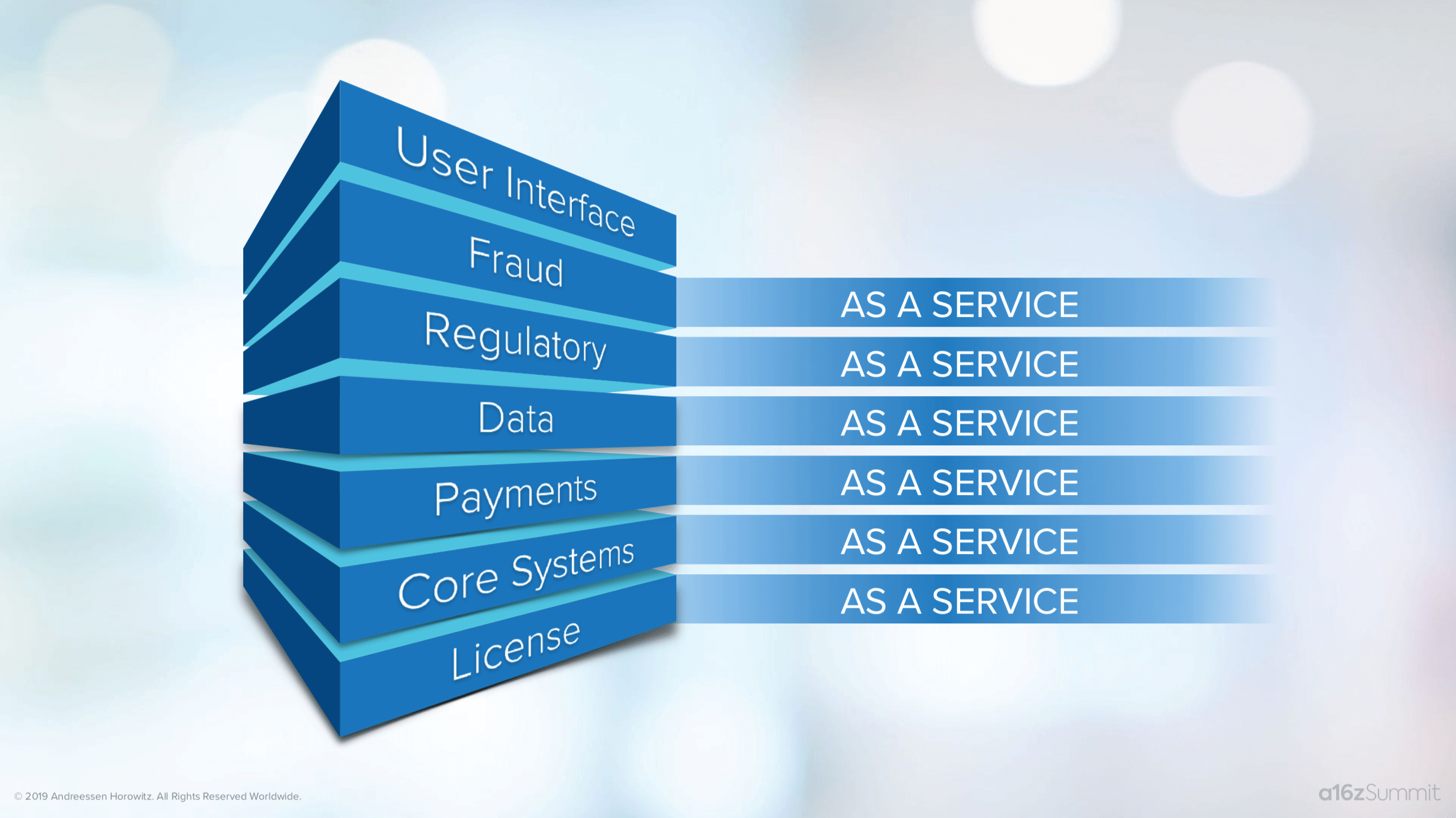I can’t write this story without taking you down memory lane. Stick with me, and the picture will become very clear in your mind.In November 2019, Angela Strange, General Partner at VC firm a16z, delivered a monumental keynote titled “Every company will be a fintech company“. In it, she argued that the SaaS-ification of the entire banking stack would turn every company into a fintech, that is, one that offers financial services without becoming a bank.The banking sub-sector is notorious for requiring significant capital, heavy reliance on multiple partnerships, and long turnaround times. Yet, it has an established business model. It charges transaction fees and makes net interest income.Figure 1 shows a typical banking stack shared by Strange in her presentation. Any company mediating the banking relationship between a fintech (closer to the top of the stack) and a licensed bank is broadly known as a Banking as a Service (BaaS) provider.With BaaS companies, fintechs could bypass the abovementioned challenges and launch new solutions in weeks instead of years. A new wave of neobanks emerged on the back of BaaS providers.Strange’s embedded finance rally wasn’t without personal interests and an insider’s perspective. Earlier that year, she announced a16z’s investment in Synapse—a BaaS provider in June. Andreessen Horowitz (a16z) led Synapse’s $33 million Series B round. Mercury, a popular neobank that launched business banking solutions in April 2019, used Synapse to issue USD accounts to its customers. Synapse’s primary partner bank was Evolve Bank and Trust, a community bank that built a reputation for partnering with fintechs either directly or through a BaaS.Unsavoury news about Synapse’s relationship with Evolve Bank and Trust and Mercury Mercury targeted non-US residents with its USD banking solution, for business reasons, as US residents are better served with banking solutions. Also, immigrants are often underserved by the banking sector mostly because they lack a credit history and a bank-favoured proof of identity like the SSN.Non-US residents include Nigerians living in Nigeria. Many Nigerians need to open a USD account to participate in the global economy since most of the world’s trade happens in US dollars. For instance, the Dollar is traded in 88% of global foreign exchange transactions and makes up about 60% of global foreign exchange reserves.However, the existing local commercial banks do not offer a convenient or suitable solution. Onboarding with banks is frustrating. The eventual domiciliary accounts only receive SWIFT transfers which are expensive compared to ACH transfers. In addition, users can’t make international transfers from the comfort of their mobile app. Digital account-issuing fintechs like Wise do not onboard Nigerian residents. So, the likes of Mercury and the African fintechs that came after offered a lifeline.

